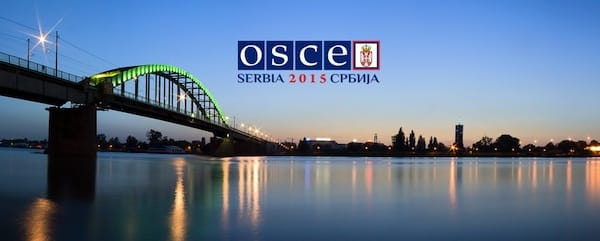
Serbia will hold the chairmanship of the Organisation for Security and Co-operation in Europe (OSCE) for 2015. Its candidacy, accepted on 10 February 2010, went hand-in-hand with Switzerland’s, which chaired the OSCE in 2014. In July 2013 the two countries presented an action plan that proposed the creation of an ‘OSCE Troika’, which would comprise representatives of its previous, current and future presidencies thus guaranteeing a degree of continuity.
What in 2012 seemed merely a recognition and symbol of Serbia’s return to international organisations after having been isolated for its role in the Yugoslav wars of the 90s, has now become a problem because of concerns about its ability to lead the OSCE impartially. Given its historical ties to Russia, doubts have been expressed by several of the organisation’s 57 member countries. Serbia is facing a task of considerable difficulty because of the Ukrainian crisis and the other ‘frozen conflicts’ involving Russia, including Transnistria, Nagorno-Karabakh, South Ossetia and Abkhazia. However, this could also be a good opportunity for Serbia to establish its credibility and commitment to the international community.
According to Serbia’s Foreign Minister, Ivica Dačić, the country’s main objectives will be to seek a political solution to the Ukrainian crisis and to become a ‘bridge’ between Europe and Russia. The metaphor reflects its aspiration of joining the EU and respecting the Ukraine’s territorial integrity while also maintaining its good relations with Russia. But becoming a ‘bridge’ in the international political scene can imply a certain lack of strategy or of a specific plan of action. If Serbia hopes to contribute something to solving frozen conflicts it might have to consider a lesson from its recent past: the absolute need for dialogue in order to avoid armed confrontations (or to halt them, should that be the case).


